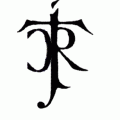Discussions
Whisky Lingo
5 117
Replies: page 2/4
Discussion search
BESPOKE - pet peeve word of my for no rational reason. In a whisky sense, it likely means that you're paying waaaaay too much for the JUICE inside jewel encrusted decanter, that is placed lovingly inside the hardwood, plush lined, display case. Cotton handling gloves included.
11 years ago 2Who liked this?
LEGS Theses are the lines of whiskey that run down the sides of you glass after you swirl the glass around. I know they are a good thing. I don't know if there is a unit of measure. Tighter, longer, wider legs, what does it mean? I' m a leg man.
11 years ago 1Who liked this?
BATCH VARIATION
This is one of my favorite all inclusive get out of jail free cards for distilleries. It allows for some batches to be good and others to be duds while not really holding anyone accountable. We all have had experiences with one bottle being really great and go back a year or even a few weeks later and something is different. I have also used batch variation to help others, who have not had a lot of whisky, understand why there are differences to them. Great discussion topic glad to see so many positive responses. (:
11 years ago 0
@PMessinger, who's letting anyone off the hook for bad batches? Not I.
.
11 years ago 2Who liked this?
@Victor not I as well, however in my usual clumsy way I was trying to approach my love for the term BATCH VARIATION. Good to hear from you. (:
11 years ago 0
VATTING
This is another one of those terms, some say is out of style, like airline stewardess. That I really like. When I was younger and flew all over the world we called them stewardess, now like BLENDING everyone wants to push older terms for more marketable hipper ones. Again I am using a broad stroke here but doesn't change my love for the term VATTING. (:
11 years ago 1Who liked this?
Recent contribution on a video review: HONEY FRESH (fruit).
What the H..... is that all about?
11 years ago 0
COMPLEXITY and CHALLENGING This may not be a popular one to dislike, but I don't think much of the term 'complexity' and 'challenging'. Although the first of these terms has an immediate sort of intuitive appeal for describing whiskies, I become less and less sure what it really means to talk about whiskies in terms of complexity, and whether there is truly a shared meaning for this term within the whisky community. I'm fine with terms like character, boldness, limpness, and of whiskies being single dimensioned or nuanced. But complexity for me is a part of overly-mythologising the depth of certain whiskies. I have probably had buyer's regret in buying a few whiskies because of their apparent 'complexity'. I think that 'challenging' is just the wrong word to use for (good) whisky also. An apt term for something that it is hard to get down your throat, but that's never the case with whisky for me! One of Ralfy's favourites this, and I find it another part of overly complicating the experience of whisky appreciation. Perhaps it may apply to when one first drinks very heavily peated and intense whiskies, but I'd much rather use less intellectualised language for my whisky experiences here as well that don't make them sound like riddles.
11 years ago 0
@AndyC, I agree on CHALLENGING especially. Challenging to ...? To do what?
Challenging to get down your throat (like you say)?
Challenging to pull out all the flavors that are supposedly in there?
I think it's usually a euphemism for "not immediately likable" but I suspect it often means the above, too. Which, of course, makes it rather unclear.
11 years ago 0
@PMessinger, if I try to think about the word VATTING in a vacuum with no regard to whisky, I gotta say: It's kind of a gross-sounding word. Who wants to consume something that came out of a big vat?
I think you have to get used to it before it becomes neutral or positive. Or maybe it's just me.
11 years ago 0
BOTTLED AT, COMES IN AT, WEIGHS IN AT, SERVED UP AT, COMING IN AT, CLOCKING IN AT
These are some of the awkward ways in which fumble with our statements of a whisky's ABV. That's obvious, but I call it out here because I think this is an idea that has no obvious elegant expression in English, so we use awkward phrasings like the above. And I can accept that awkwardness but I hate that none of these expressions really convey that the cask contents are watered down to the level we see in the bottle. "Bottled at 40%." That does nothing to convey that to the uninitiated that a third of your bottle is water.
I've taken to calling cask strength whisky "undiluted." If it's not cask strength, I'm trying to say "diluted down to X%."
And a tangential point to all this: Statements like "Bottled at X%" tend to shortchange aged whisky. Consider a young whisky that's 60% ABV in the barrel and an aged whisky that's lost a fair bit to the angel's share and has sunk to 48% ABV in the barrel. If both are "bottled at" 40%, it sounds like there's some parity there. But there's not.The bottle of young whisky is 33% water while the bottle of aged whisky is only 17% water. If we instead say "diluted down to X%"—even if we don't get into the math—we at least describe what happened and those of us who understand barrel ABVs will, I think, be reminded of how much LESS dilution that aged whisky has.
(I'm going to start a new thread on this.)
11 years ago 0
@OlJas actually, if it's bottled at 40%, regardless of the cask ABV, it's 59.99% water...
11 years ago 1Who liked this?
@Nozinan, I think it makes sense to distinguish "non-alcohol stuff* that aged in the cask" from the water they dump in during bottling. I would not equate them.
*even knowing that most distilleries dilute their raw distillate down to a standard 63.5 ABV "entry proof"
11 years ago 0
I think this thread is becoming a bit too… successful. Are there any terms left out there that aren’t pissing someone off? MALTY is out? COMPLEXITY is out? BOTTLED AT… % is out? Really?
With all due respect I’ll be ignoring the lot of you and writing things however I want. If you’re new to this site and thinking about contributing a review, don’t let this thread deter you. Your writing is your own, feel free to use any terminology you want.
11 years ago 3Who liked this?
@hunggar, before I got into whisky, I thought most booze was naturally just 40% ABV. Why? Because people don't talk about it being diluted—if anything, they say it "weighs in" or "is bottled at." So I really do think that's unclear lingo.
But you've got a good point. This second page has more complaints than the first. Here's one I like.
BRACING
I like how "bracing" conveys something about both the taste—typically intense, often salty or peaty—and the drinking experience. A bracing whisky blows your hair back and you like it. "Bracing" is almost always an attractive trait when I read it in a review.
11 years ago 0
(I'd also hope that anyone hoping to write reviews would appreciate comments from the readers of said reviews on what lingo can be confusing.)
11 years ago 0
The idea of discussing lingo is fine. Like I said, it’s an interesting topic. If a term is unclear, it’s good to explain it, as you’ve been doing. But this discussion risks simply turning into a “don’t write” list. I’m just worried this thread is more likely to intimidate first-time writers than clarify for them.
11 years ago 2Who liked this?
Here's one that I think is just interesting:
DRAM
I won't get into the weights and measures business. Folks that look that up on wikipedia or whatever if they're interested—and probably read about how it descends from the ancient cubic cubit or something.
What I think it is interesting about DRAM is whether people consider it specific to scotch. I never thought much about it, but once that idea was suggested to me, it seemed right. People talk about a DRAM of scotch whisky but not so much other types of whisky—and definitely not other types of spirits.
I don't drink bourbon much, but I get the impression that bourbon drinkers often prefer the term POUR.
What's really interesting—or at least, has one interesting link I can give—is whether DRAM is natural for Irish whiskey. The very Irish chaps over at the Irish Whiskey Society discussed this point a while back and somewhat-seriously toyed with quite a few terms that might be more appropriate to adopt for Irish, including PEG, HALF-UN, BALL OF MALT, DREETHER, SUP and more. It's a good read.
11 years ago 0
Hi @hungarr, OIJas. I think that it is very worthwhile having this discussion because I think that it is sometimes difficult to know what terms people are use expressively, to capture the feel of an experience of a whisky, say, and what terms they are using more literally to capture something that they think is an objective feature of a whisky.
As OIJas says, I think that is actually quite helpful to have such discussion, because it can be quite daunting to write whisky reviews if you think that everyone else knows what they are talking about a lot more than you do - the lingo, if not discussed, can i think be off-putting in this way.
I didn't mean to imply that people shouldn't use terms like complexity, but rather that it would be good to know what people consider this sort of term to mean, as I don't think it is actually that clear. Do some people mean something akin to simple 'depth of flavour', whilst others mean that they experience an 'interesting balance and interplay between different flavours, bitterness and sweetness etc.', whilst others mean that a whisky is 'hard to fathom' or just 'characterful'. Do people think that complexity is an objective feature of a particular whisky, or is it something they think is subjective and expressive?
Terms like 'complexity' are often Powerfully Suggestive to me that a particular whisky is worth seeking out, and I have sometimes been somewhat disappointed not to find this slightly elusive characteristic in a whisky that is frequently said to be complex.
11 years ago 1Who liked this?
@hunggar
As the MRP for MALTY, I should emphasize that I have no problem with the term. I was simply asking what smell or taste I should be associating with it. I don't have a supertaster's senses, and I find I don't get half of what others often say they they can perceive.
What used to impress me and now bores me is the pretentious stuff. I am skeptical that people can find 100 different smells in one dram, and frankly, if I have to work that hard, it's no fun.
Don't get me wrong, I enjoy detailed reviews. If someone can find specific smells (and I do occasionally) it's interesting. But if you listen to one online reviewer and make notes of all the whiskies that taste like boiled sweets and cola cubes (whatever that is), you'd think half of all whiskies smell and taste the same. Not to mention the smell of "glucose" as opposed to "Barley sugar".
It's great to use detailed, interesting language, but I say keep it real....
As for DRAM, my whisky bunch use it as a verb. Shall we dram? Let's have a dramming session, etc... When I speak to others I refer to the word as a measure, but not with a particular volume. I agree it would be more accurate to use the term "pour".
11 years ago 1Who liked this?
@AndyC, to me COMPLEXITY always means BREADTH of flavour, in contrast to INTENSITY, which means DEPTH of flavour.
Certainly for someone like Jim Murray COMPLEXITY always means BREADTH of flavour, because he glories in the "complexity" of many rather light low-abv non-intense whiskies. By this definition a whisky can be complex, yet very light.
Certainly COMPLEXITY is a totally subjective concept as applied to whisky. We do not all taste exactly the same things or the same number of things in the same whisky.
As for 'whisky lingo' "gripes" my largest ones are many of the tradtional terms of Scottish whisky, which I consider anachronistic, unclear, confusing, and ridiculous.
SINGLE MALT SCOTCH
Sure, it has to be made in Scotland. I have no problem there. Use of the word SINGLE is just absurd. IT is a bad joke, really: "HOW MANY DISTILLERIES DOES IT TAKE TO MAKE A WHISKY? A SINGLE distillery", of course. It is assumed by EVERYONE, as it should be, that a malt is made in only one distillery unless it is specified otherwise. When I tell whisky newbies what SINGLE means in SINGLE MALT SCOTCH, they are always amazed at how stupid, illogical, and redundant this usage is. They usually think it means whisky from a single barrel, or a single batch...nope, not even from a single year's production, ...just from ONE DISTILLERY, as though you needed more than one distillery to make a whisky. (...and multiple casks from multiple years of production of SINGLE MALT are all BLENDED together to make a SINGLE MALT, but you don't say that they are BLENDED)
GRAIN WHISKY, for Scotch lovers = whisky made from SOME GRAIN OTHER THAN BARLEY, as though BARLEY WERE NOT A GRAIN. All whisky is grain whisky, BY DEFINITION.
In BLENDSPEAK, GRAIN WHISKY almost always means a mixture of wheat whiskies and corn whiskies, as though they were just about the same. Nothing could be further from the truth. Corn/maize whisky will just 'blend' right into almost anything and leave virtually no flavour (particularly at the 90% abv diluted down to 40% abv at which Scottish grain whiskies are distilled); wheat whisky has flavour, very definite flavour, even heavily diluted. Personally I think and have very long thought that it is precisely the flavour of wheat whisky included in blended Scotch which most malt drinkers do not care for. For me wheat flavours clash inharmoniously with peat, smoke, and all wine flavours. The flavours of wheat, plus dilution to 40% abv, are what make blended Scotch whiskies "second class" in the minds of most malt lovers. And I am most certainly a malt lover myself.
SINGLE GRAIN WHISKY = CORN WHISKY (100% of the time? 90% of the time?) If it is made from 100% corn, for God's sake call it CORN WHISKY (or MAIZE WHISKY). That's what it is. Then SINGLE GRAIN WHISKY will mean something when and if it is applied to some other grain, of which there are quite a few other possibilities. Whenever I see 'single grain whisky' on a bottle, I ask "Which grain?". There is no reason whatsover that single grain whisky should be assumed to have been made from corn. If it is corn whisky, just call it CORN WHISKY.
BLENDED vs VATTED as related to Scottish malt: I still prefer the somewhat hoary term VATTED because of the enormous amount of confusion which exists when you use the words BLENDED SCOTCH WHISKY. Sure, BLENDED SCOTCH WHISKY is now supposed (by the SWA--Scotch Whisky Association) to mean exclusively Scotch which combines 'malt' plus 'grain' whisky, and not two or more 'malt' whiskies only. Those are now "BLENDED MALT (SCOTCH) WHISKIES". Well, you have only to go to the Connosr blended Scotch discussion boards and see multiple posts about not blended Scotch whiskies, but blended malt whiskies. Enormous amounts of perennial ongoing confusion continue to reign when you talk about "blended Scotch".
11 years ago 2Who liked this?
@Victor, I agree that SINGLE GRAIN is an especially confusing term. Doesn't it really mean the same as single malt—that is, grain whisky from a single distillery? It sure sounds like it would mean whisky made from a single type of grain, but I don't think it does.
(Of course, that doesn't preclude that it could be made from a single type of grain. I believe the two concepts are totally unrelated.)
11 years ago 0
@OlJas, yes, that's right that SINGLE GRAIN WHISKY does literally mean "grain" whisky from one distillery only, and not one grain only,...but it seems all of the 'single grain' whiskies I've tried taste only of corn to me.
Whenever I drink any whisky I want to know the type of whisky I am drinking by mashbill. If it is "grain", what is it? 100% corn? 70% corn + 30% wheat? Calling it "grain" without specification seems to me as nebulous as selling "meat" without specifying the animals involved.
11 years ago 2Who liked this?
SHERRY MONSTER
I just came across Ralfy's discussion what constitutes a "sherry monster." Review 214 (Ben Nevis 25 YO): www.youtube.com/watch
11 years ago 0
@Nozinan, I just happened to catch Ralfy mention BARLEY SUGAR in his review #221, and he paused himself to explain, "those barley sugar sweets you can buy in traditional British sweetie shops."
I still don't know the taste, but apparently it's a very specific thing.
11 years ago 0
@AndyC, on COMPLEXITY:
The following article is a little bit about the idea of complexity and very much about where complexity comes from and how it's changed over the years:
11 years ago 0
OFFERING
This is what people call "whiskies" for some reason that I can't guess. I don't hear about the latest "offerings" from Captain Crunch or Suave shampoo, but I sure do hear about them from whisky makers. Weird. I think an influential writer must have liked the term at some point and it caught on.
9 years ago 1Who liked this?
FWP
"French Whore Perfume"—This the gross sick lavendery smell famously associated with early 1980s Bowmores.
I've never had one like this. Who has?
9 years ago 0








Use the filters above to search this discussion.